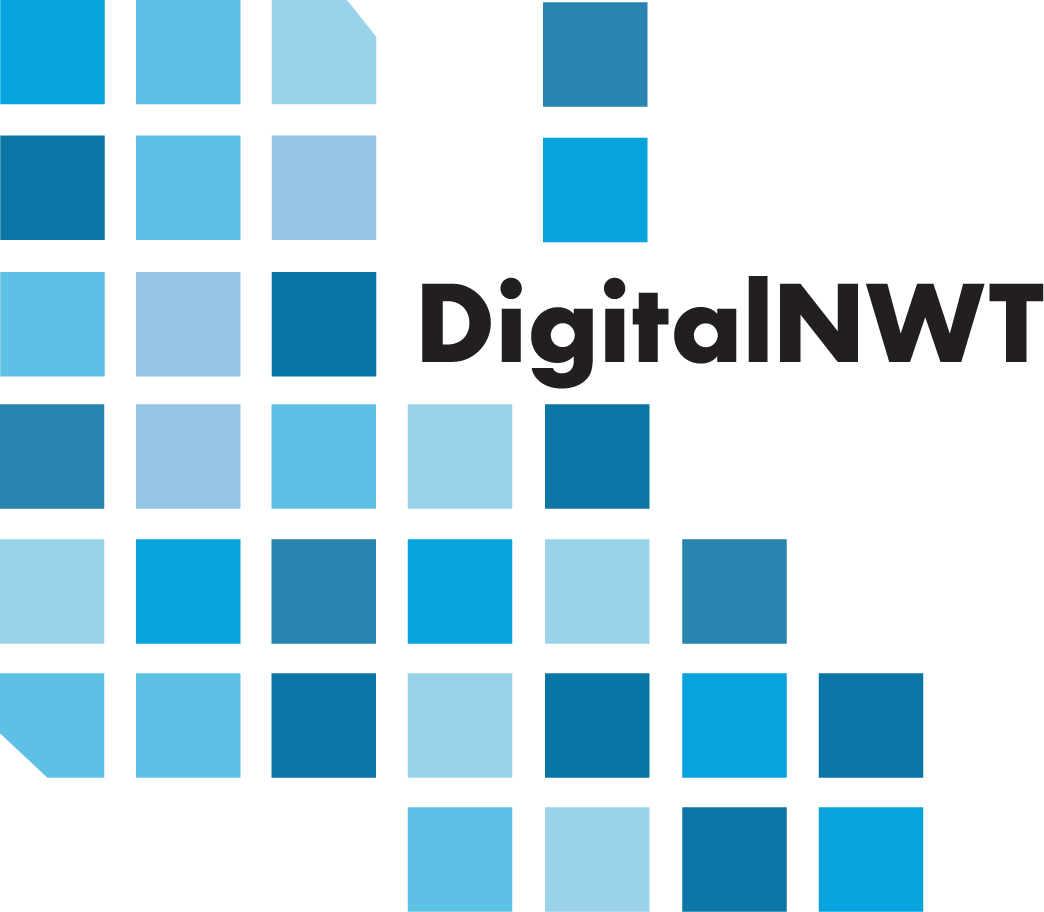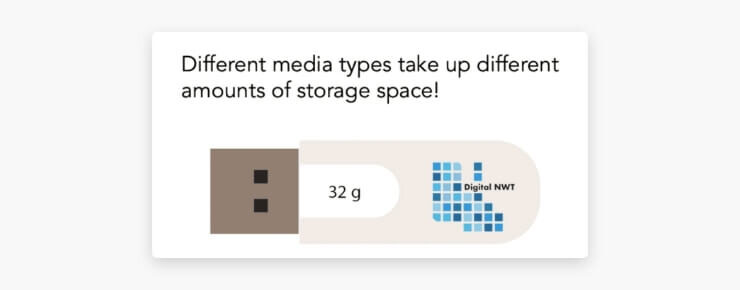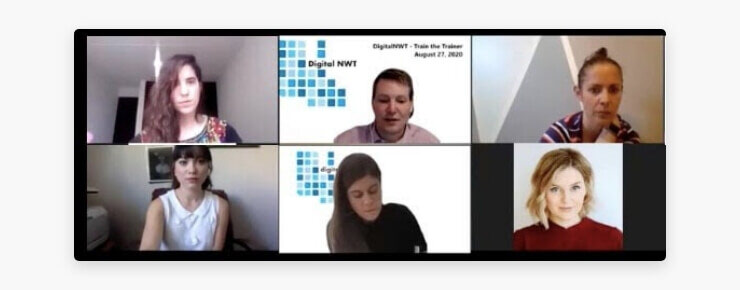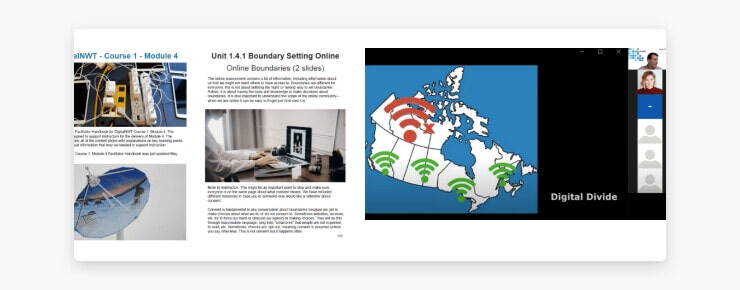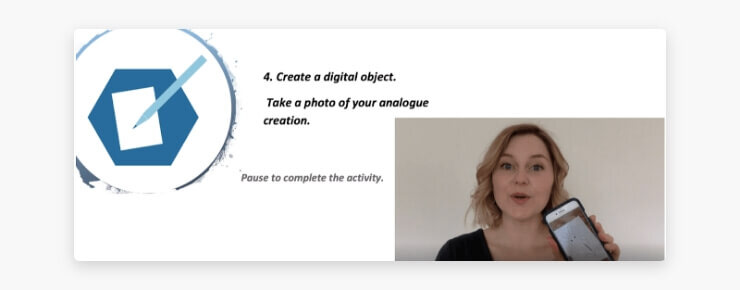Delivering Digital Literacy with COVID-19
Responding to big changes & challenges
September 14, 2020
This summer the DigitalNWT team faced an interesting challenge brought on by the worldwide COVID-19 pandemic, and exacerbated by the limited high-speed Internet access in many NWT communities.
Experimenting with online approaches
Due to social distancing measures, we were unable to deliver our annual ‘train-the-trainer’ session in person, and so had to experiment with online and distance education approaches.
On August 26 and 27th, 2020, the curriculum team for DigitalNWT met with nearly 20 NWT-based community members and Adult Educators from Aurora College over Zoom. This session looked a little different than the first train-the trainer session for the project, which was done in person this time last year over three days in Inuvik.
A great learning experience
Although the online format was a major change from last year, this session was a great learning experience and a huge help to the DigitalNWT project. Following the project’s co-creational approach to curriculum development, we focused on working with Adult Educators (two of whom are members of the project’s curriculum design committee) to provide feedback and ask questions about the new Course 2 curriculum.
We also discussed how to set up our new distance education delivery model (Courses 1 and 2). The revised Course 1 materials were also shown and discussed. The insights and expertise the Adult Educators bring to the delivery of the content is key to making the courses effective and successful.
A hard decision to make
The choice was made over the summer to move Course 1 and the new Course 2 curriculum from a hands-on in-person workshop to remote delivery. This was a hard choice for the team to make, because in-person delivery works so well for the project’s community-based approach, and allows participants to work together through hands-on activities and discussions.
As soon as the DigitalNWT team learned of the COVID-19 pandemic, we immediately decided to cease all travel to NWT communities to avoid potentially spreading the virus. As well, following NWT public health protocols, the University of Alberta and Aurora College had paused in-person course instruction in Fall 2020 .
To ensure that NWT community members could still benefit from the DigitalNWT course materials we are developing, the team shifted to a remote delivery version of the courses. We spent a long time thinking through this change and discussing how to re-envision our Course 1 and Course 2 curriculum in a way that remained engaging for students, but could also be delivered through distance education this year.
A further challenge is that most NWT communities have unreliable, slow, and expensive broadband connectivity.
To address this challenge we decided to create pre-recorded video versions of the Course content that could be delivered through USB sticks rather than over the internet, if that worked better for participants in NWT communities.
Taking a collaborative approach
These significant changes meant feedback was a key part of this year’s train-the-trainer -- not only regarding the curriculum and content, but also on whether the video delivery was effective, useful, and interesting. The curriculum team also wanted to hear from Adult Educators to learn what their role would be in this very different context of remote delivery.
During the train-the-trainer session, we discussed video guidelines including clear and evenly paced speech, text on screen for key points, and plenty of visuals mixed in. Several excellent ideas emerged from the discussions we held, both in the main session and in breakout rooms. A central theme that emerged from these conversations was how the whole DigitalNWT team can work together to make the remote model a positive and useful experience for learners.
One of the primary concerns of the DigitalNWT team is how we can continue to engage and collaborate with people living in rural NWT communities despite the limitations we currently face with respect to our ability to meet in person. While everyone would prefer to do in-person workshops, the remote video approach provides a way for both Course 1 and 2 content to be delivered in a way that does not rely on an internet connection.
Learners across the NWT will also have the support of Adult Educators based in their communities as they work through the material. Participants in the train-the-trainer event reinforced the importance of making digital literacy instruction available to as many people as possible. The Course 2 remote material also aims to include activities that people can do at home, to give it a more hands-on feel even outside the traditional classroom setting.
Stay tuned for more updates
DigitalNWT is always seeking ways to better reflect the lives and cultures of the diverse communities we are serving. One great suggestion we heard from participants in the train-the-trainer session was to centre our course content focused on a community broadband network (Course 2) around the people it can connect, particularly aunties, uncles, and cousins. This reminds us that it is people, not technologies, that are the primary focus of digital literacy teaching and learning.
All in all, train-the-trainer remote edition was a success. All the DigitalNWT partners look forward to launching course 2 and the revised course 1 materials through fall 2020 and winter 2021. As well, we will provide these materials for free download on this website as they become finalized - stay tuned!
